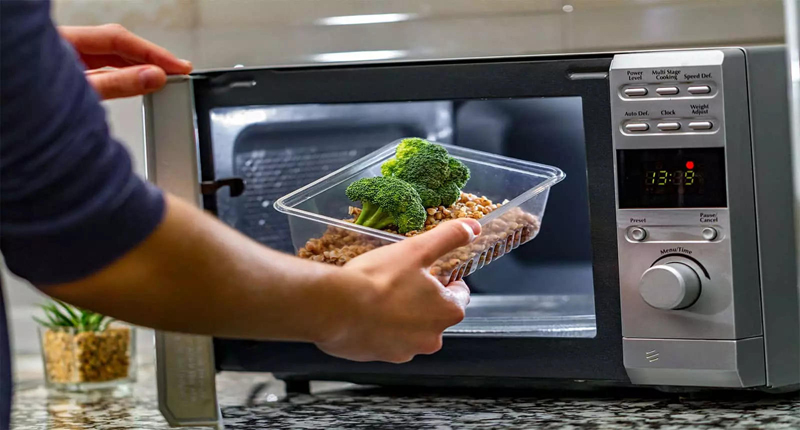Microwave ovens are one of the most important kitchen appliances in modern life. But if it stops working, it can be a huge problem. This article will help you understand why your microwave oven stopped working, and what you can do about it.

What problems can be fixed by yourself?
Certain minor problems with your microwave oven can be resolved at home without professional intervention. Here are a few issues you can typically handle on your own:
1. Microwave Not Powering On: Check the plug and ensure it is fully inserted into the wall socket. Check your circuit breaker or fuse box to make sure a breaker hasn’t been flipped or a fuse hasn’t blown.
2. Food Not Heating Evenly: This can often be due to incorrect placement or arrangement of food in the microwave. Make sure food is spaced out and even in thickness for even cooking.
3. Plate Not Spinning: Check if the turntable is properly aligned on its tracks. Also, make sure nothing is obstructing it from spinning like large dishes or food particles.
4. Light Bulb Out: It’s usually easy to change the light bulb on a microwave. However, make sure to unplug the microwave before doing so for safety.
5. Door Doesn’t Close: This could be due to food or grime build-up. Clean the microwave door and the areas where it closes to see if it helps.
What problems require professional intervention?
There are also some types of problems that you should not fix by yourself, if you are not a specialist. The most common are:
1. Faulty Magnetron: The magnetron is the component that produces the microwaves for heating. If it malfunctions, it can cause heating problems.
2. Faulty Door Switch: If your microwave oven isn’t starting at all or starts operating when the door is open, the issue might be with the door switch. Faulty switches can cause sparking and heating issues.
3. Faulty Capacitor: A broken capacitor could cause your microwave to stop heating food. Discharging and replacing a capacitor is dangerous if not handled correctly.
4. Faulty Thermostat: If the microwave oven isn’t heating properly or if it heats up too much, your thermostat might be broken.
6. Faulty Fuse: If your microwave oven isn’t turning on, the problem might be a blown fuse, which can be replaced.
Remember, that microwave oven is quite dangerous appliance, so if you have the possibility, it would be better to contact appliance repair company.
If you check all the points and still do not know what kind of problem your microwave oven has faced – you should leave it for a professional.
What to do, if you decide to fix the microwave oven by yourself to avoid risks for your health?
If you decide to work on your microwave oven, follow these safety precautions:
1. Unplug the microwave: Always unplug the microwave before starting any repair work to avoid electric shock.
2. Allow it to sit before beginning any repairs: Capacitors in a microwave can hold dangerous levels of electricity even after the microwave has been unplugged. Allow the microwave to sit unplugged for a few hours before beginning your repair.
3. Use Insulating Gloves: Wearing rubber gloves can protect you from electrical shocks.
4. Avoid Touching the High Voltage Capacitor: Even when it’s unplugged, the high-voltage capacitor can store up to 2,000 volts. Never touch the terminals on the top of the high-voltage capacitor.
5. Don’t bypass the door switch: The door switch on a microwave oven is a safety mechanism that stops microwaves from operating when the door is open. Never operate a microwave with the door open or bypass the door switch mechanism.
6. Double-check everything: Before you plug the microwave back in, double-check your work and make sure everything is properly assembled.
If you feel unsure or uncomfortable at any point, stop and hire a professional. Your safety is always the priority.
Conclusion
When a microwave oven stops working, it can be a frustrating problem. However, by understanding what can go wrong and how to diagnose the problem, you can figure out what is causing the issue and fix it yourself. If you can’t fix the problem or if the problem can be potentially dangerous for you, then it may be time to call a professional.
